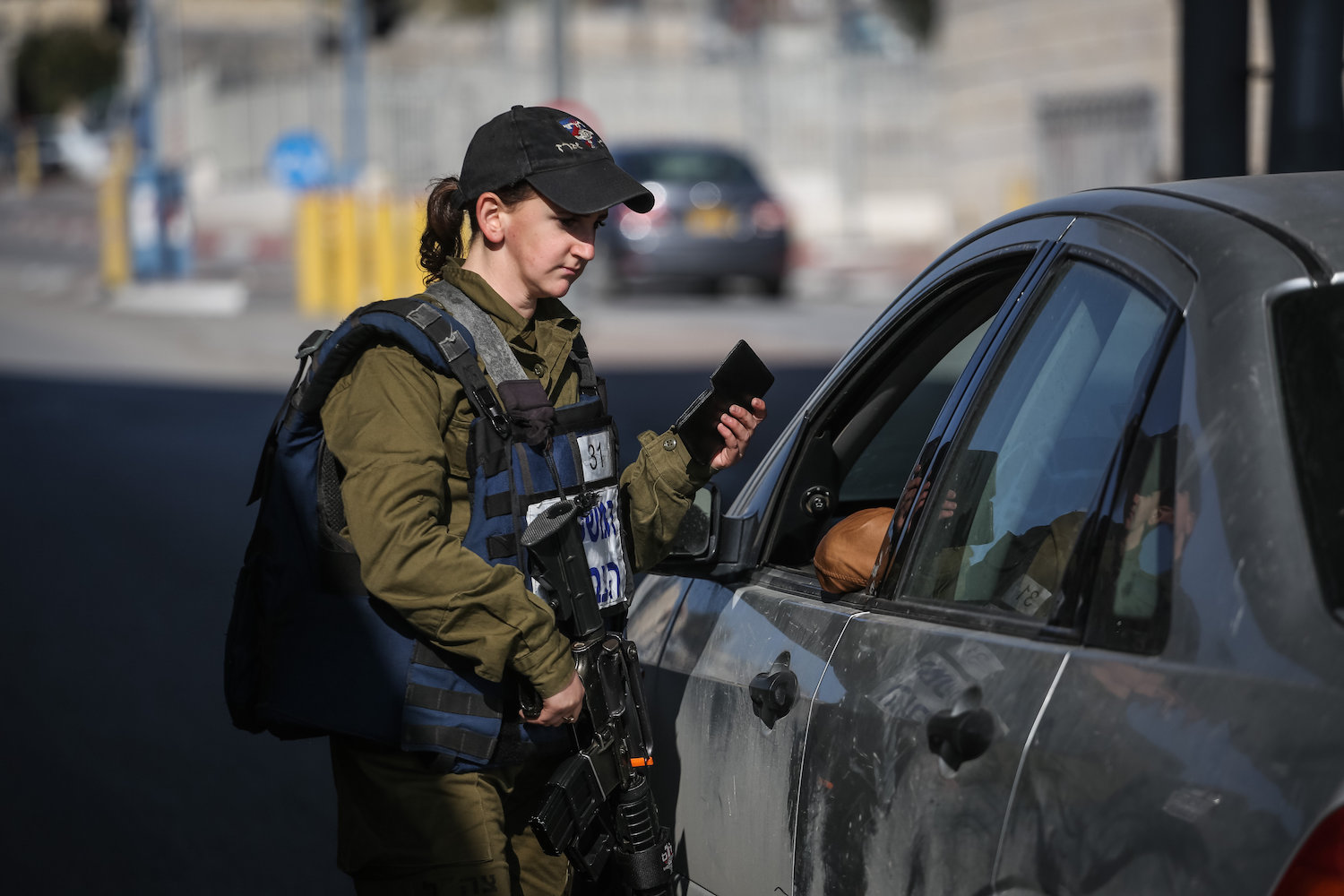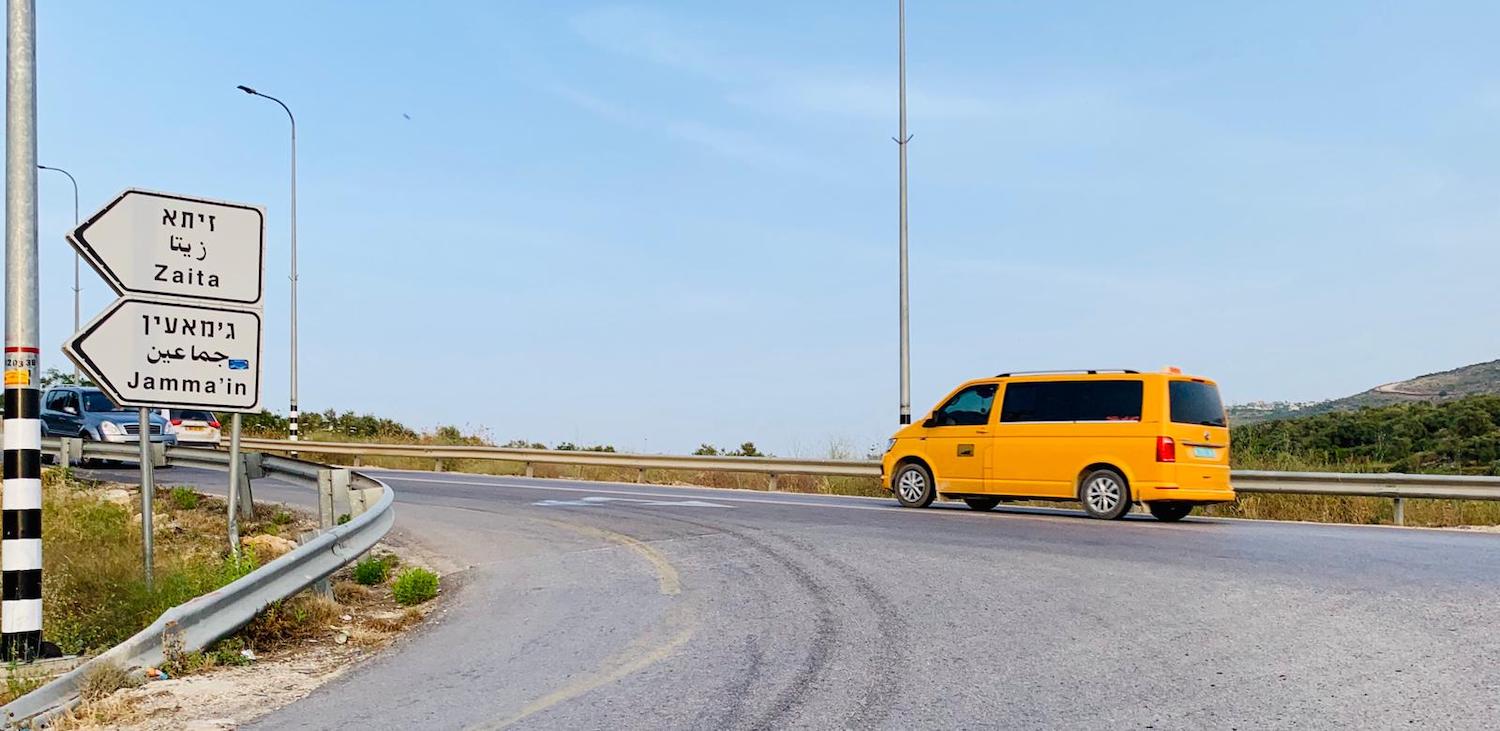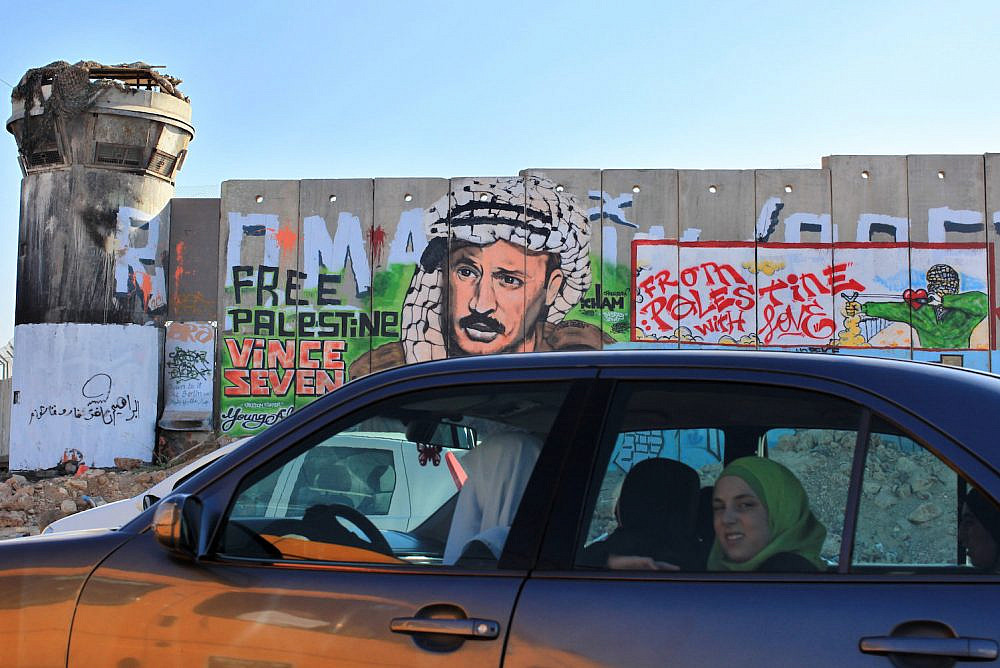“Don’t rev your engine. Keep your hands on the steering wheel. Don’t make sudden eye contact with the soldiers in front of you. Turn down your music. Have your ID ready to be checked. Have your foot on the brake pedal. Make sure when the soldier waves you forward that you don’t hit the gas pedal by accident.”
This is part of the checklist I run in my mind every time I cross an Israeli military checkpoint in Palestine. It is the routine my father taught me at 17, when I first drove with him through the infamous Za’atara checkpoint, near my family’s village of Jamma’in in the occupied West Bank.
In the more than 10 years since then, I have become well acquainted with the roads that connect all the major Palestinian cities in the West Bank, from the rolling Hebron hills in the south, to the majestic agricultural landscape of the Jordan Valley, to the never-ending olive groves of Jenin in the north. I remember dodging the potholes and the people on the streets of Kufr Aqab on my travels back and forth between Ramallah and Jerusalem. It is on my drives from one family village to another that I have witnessed the voracious expansion of Jewish settlements over the years.
Every kilometer of these roads, however, poses unique risks to Palestinians.
We must share our streets with Israeli soldiers and armed settlers. Every time we hit the road, we are not just concerned about getting into an accident — the lanes are narrow and there are no barriers separating opposing traffic — but we are also acutely aware that the slightest wrong move on our part could get us murdered by our colonizers.
Israel’s apartheid regime requires Palestinians in the occupied territories to drive cars with white or green license plates — a way of helping Israelis monitor and control the movement of Palestinians before they even disclose their identity.
Israeli citizens, by contrast, drive yellow-plated cars that allow them to roam freely throughout the West Bank and inside Israel, on land the state stole from Palestinians in 1948. Palestinian citizens of Israel and those who are residents of Jerusalem also drive with yellow plates, but are still racially profiled and subjected to harassment at checkpoints.

In a white or green-plated car, you have to take extra precautions and remain alert in this racially-securitized environment. There is no such thing as a leisurely drive in your militarized, occupied land. You can’t let your mind wander into the mundanity of daily life. You can’t make a wrong turn, or you will end up at the patrolled entrance of an Israeli settlement. You can’t let your mind slip, or you might accidentally hit the gas instead of the brake pedal while at a checkpoint.
Memories of my drives in Palestine came rushing back when I heard the news that Ahmed Erakat, a 27-year-old Palestinian, was shot dead by Israeli soldiers after his car veered into a guard post at a checkpoint in East Jerusalem.
It is still unclear what exactly happened, but we know that Ahmed was on his way to pick up his family members at a hair salon in Bethlehem on the day of his sister’s wedding.
I can only imagine the anxiety and pressure Ahmed must have felt. He was responsible for making sure that everyone gets to their appointments on time — and on a wedding day, no less, when the families’ stress-levels must have been especially high. These errands become even more stressful when you take into account the checkpoints you need to cross to make sure everything goes smoothly.
I know how intense this experience can be, because it happened to me.

On my brother’s wedding day two years ago, I, like Ahmed, was the designated errand runner. Using a green-plated rental car my dad had lent me, I had to drive between Nablus and Ramallah multiple times that day — a ride that takes at least 40 minutes in each direction — to drop off family members at their different appointments. During those hours, my phone didn’t stop ringing: I was either scolded for running late, or tasked with another assignment. My anxiety and stress peaked, consuming my mind.
When I drove up to Za’atara checkpoint, instead of slowing down, I accidentally hit the gas pedal and almost ran into the bus stop where a few Israeli settlers were standing. Luckily, I was able to quickly hit the brakes before it was too late. I know that mistake could have cost me my life through the barrel of a gun. I could have ended up as another “terrorist,” blamed for my own death, portrayed as a Palestinian who intentionally rammed his car into Jewish-Israelis.
In the eyes of our colonizers and their supporters, Palestinians are never allowed to make a human error. We aren’t afforded the luxury of mistakes. To them, we only seek out death and destruction; we are not human beings who have the same range of emotions, stresses, anxieties, worries, and flaws that could cause such accidents. In this apartheid system, the colonizers must always justify their military occupation and land theft by demonizing the colonized.
Every time I am about to hit the road after visiting my grandmother, she begs and pleads with me to drive safely. I know that her words are more of a prayer than a send-off. A prayer that I won’t end up another casualty like Ahmed Erakat and countless others condemned to death for driving while being Palestinian.

